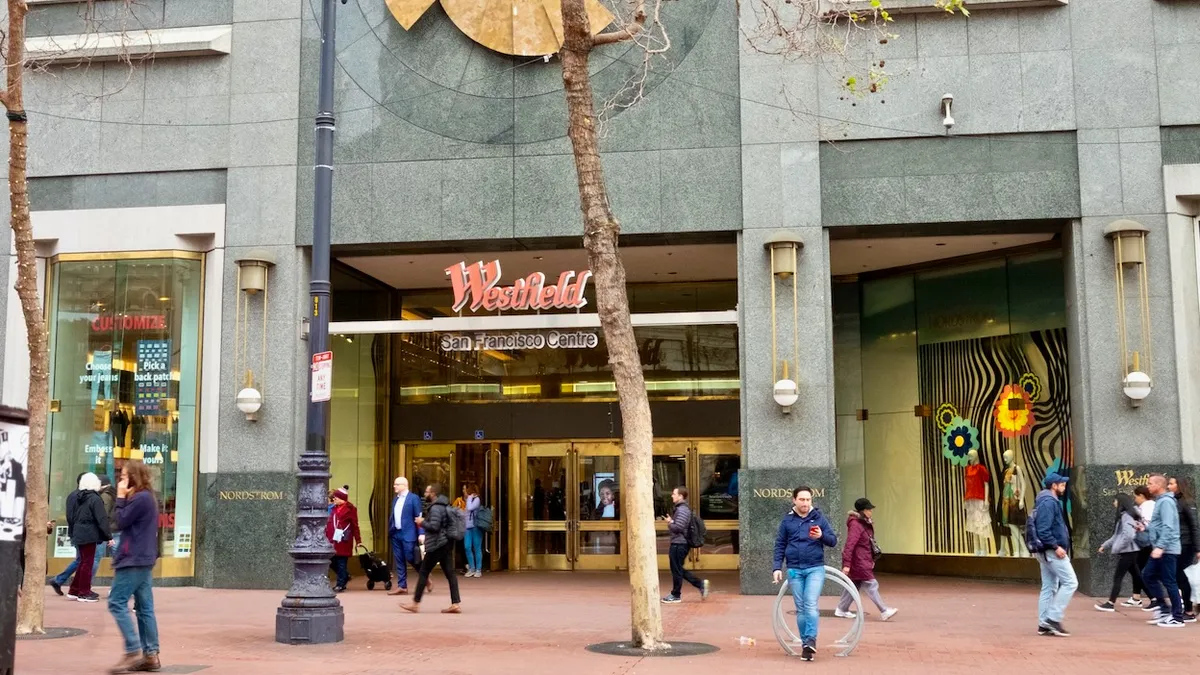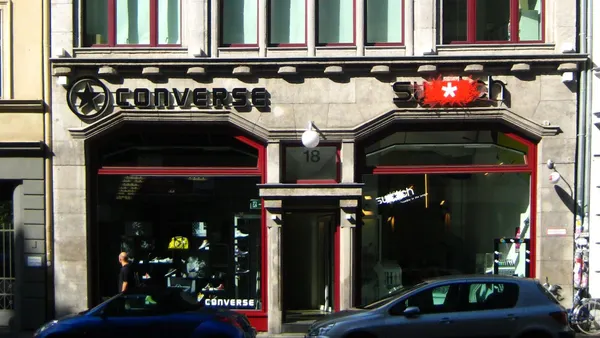Dive Brief:
-
American Eagle Outfitters this week sued Westfield San Francisco Centre, alleging neglect of the location, involving its decision to cede the property to its lender, and including “neglecting its obligations to maintain the Common Areas under the Lease and turning a blind eye to ‘rampant criminal activity’ occurring at the mall,” per court documents.
-
Between May 2022 and May 2023, American Eagle store employees at the mall location “reported over 100 significant security incidents ranging from harassment of employees to verbal and physical assaults.” That included instances of assaulters brandishing weapons including firearms and, in one case, a machete, the retailer said.
-
Westfield declined to comment on the lawsuit.
Dive Insight:
When Westfield announced that, after more than two decades operating San Francisco Centre, it would hand over the keys to its lender, the company cited falling sales and footfall amid “challenging operating conditions in downtown San Francisco.”
In its lawsuit, American Eagle implicated Westfield itself in contributing to those conditions. The retailer pointed to lease clauses that stipulated Westfield’s obligations.
“Westfield accepted no responsibility for its role in allowing these issues to infect its mall,” the retailer said in court documents. “It shifted all the blame to San Francisco in public statements and through the media. But Westfield omitted from those statements that it considered options to address the security issues at the mall, but ultimately decided not to make that investment.”
Westfield also closed the mall’s management office, which left American Eagle to contend with unmonitored common areas and any problems within them, per the lawsuit. While Westfield invited tenants to communicate emergencies through texts or phone calls, the company responded to less than half of such calls and texts from American Eagle, the retailer said in its suit.
If true, Westfield’s moves to scale back its oversight of the property amid escalating challenges are unusual, according to Jim Bieri, principal at Stokas Bieri Real Estate in Detroit, who brought several tenants including J. Crew to San Francisco Centre before Westfield took it over 20 years ago.
“You'll find that most companies, if they have an asset they want to protect and there's some challenges regarding it, they up the security, they up the management. They pay more attention to it rather than less attention to it,” he said by phone.
Bieri sees the mall as a once-innovative property that has failed to thrive amid the city’s challenges and possibly under some aspects of Westfield’s management. In June, a Unibail-Rodamco-Westfield spokesperson told Retail Dive that occupancy there had fallen some 55% — including the recent closures of Nordstrom and Banana Republic — while its overall portfolio averages about 93%, the spokesperson said.
In its lawsuit, American Eagle accused the company of investing in other area properties while ignoring San Francisco. For example, the retailer noted, Westfield invested $1.1 billion to expand its San Jose location 50 miles south, which saw record sales last year, and that Westfield completed a $1 billion makeover of its Century City location in Southern California around 2017, and that it’s now reportedly close to securing $925 million in additional financing there.
“As San Francisco has deteriorated as a city, Westfield I think over-expanded it, like they did in a lot of centers,” Bieri said. “Like they put in a food court that didn't really work. My guess is that they didn't put the money against it they needed to keep it going.”
Still, the outcome of this lawsuit will depend on the lease’s specifics regarding standards of maintenance, operation and upkeep, according to Nick Egelanian, president of retail development firm SiteWorks. Moreover, Westfield’s level of responsibility is complicated by the fact that it has surrendered the mall to the lender, he said. In several scenarios, “the ‘owner’ (i.e. Westfield) loses control, and I would see it as a real stretch to hold them responsible for property-level lease violations,” he said by email.












